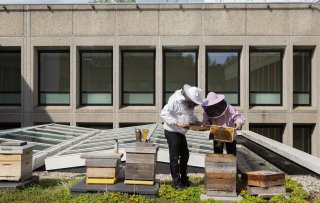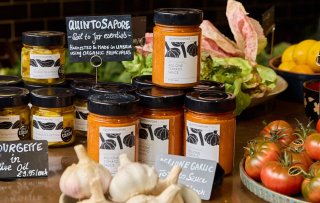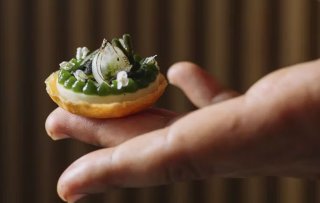We live in a time of abundance. We are destroying our natural resources and we are not talking just food, but also energy, water and raw materials.
The realization that we have to change our behaviour in consumption, and have to produce a more sustainable way of living, is growing drastically, but consumers and entrepreneurs are struggling with the question: how?
Instead of being frugal and buying less during a time of crisis and the threatening food shortage, we should really focus on stopping the tremendous waste that's happening all around us. It's unbelievable what you see. We are no longer shameful and defend the system by hiding behind excuses of cheaper raw materials, supported by wealth.
1. The first step for a no-waste environment is to know what you throw out
Plastic containers, carton boxes and glass bottles are easily measured in garbage bags every week. A trick to find out how much food you throw out in one week is to keep organic waste in a separate garbage bin. After that week, we advise you to weigh it and make it a goal to reduce that food waste.
2. Stop food waste, save on energy
We are now so conditioned that we throw out cucumbers that are crooked so they don't end up in the stores. Considering all initiatives to stop food waste will also save on energy. Improvement is almost too simple. It's easier than you think. Working together on values will lead to excellent examples and good story telling.
3. Experiment with by-products
For restaurant owners it's a challenge to experiment with by-products that normally would not be used. For example wild crayfish is seen as a by-product by fishermen and thrown back in the water and cheese makers throw out whey coming from processing cheese. There are many recipes that could use these neglected ingredients. Besides, it's smart to use the natural cycles. Coffee grinds are excellent feed for oyster mushrooms. Caterer La Place in The Netherlands offers their coffee grinds to 'Gro Mushrooms', who grow mushrooms that appear later on the menu of La Place.
4.Throwing out food should be the very last option
Try anything to make it useable; maybe it can go to the Salvation Army or the Food Bank.
Cook with bruised produce, even if those products don't look good. You won't taste that in fresh vegetable or fruit salads or juices. Vary the size of portions. Besides asking the guest if he or she wants a small, medium or large portion, you can make small portions the norm, telling your guests they can always ask for more.
5. Bring back the old way of cooking
Old bread can be used for French toast, bread puddings, croutons or breadcrumbs. Try to avoid disposables or using non-recyclable package material. Save water whenever possible. Use LED lamps instead of ordinary light bulbs. Investigate the possibilities of putting solar panels on your roof and how to generate your own electricity. Put the thermostat or air-conditioning down, if not needed, preferably using an automatic timer. No (time to) waste!
.png-28x28.png) Written by
Written by 
























